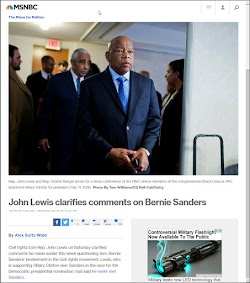Double Standard: Clinton Emails Released on Eve of Super Tuesday
The timing couldn’t be any more perfect. At the end of the day, and right before the primary elections Super Tuesday. What a scam. Soldiers serving in the military would have been subjected to an Article 15 for mishandling any government information, classified, secrete, confidential or top secret.
State Dept. releases final haul of Clinton emails
With the last batch, released on the eve of Super Tuesday, the number of classified emails rises past 2,100.
By Josh Gerstein and Rachael Bade, Politico.com
(Feb. 29, 2016 16:22 PM EST) — Democratic presidential candidate and former Secretary of State Hillary Clinton is escaping the State Department’s final release of her emails — on the eve of Super Tuesday — without any more of the messages from her private account being designated “Top Secret.”
However, the total number of messages deemed classified by the State Department surged past 2,100 in the last document dump, adding to Clinton’s headaches about her judgment in using a private server for all her email traffic while secretary.










